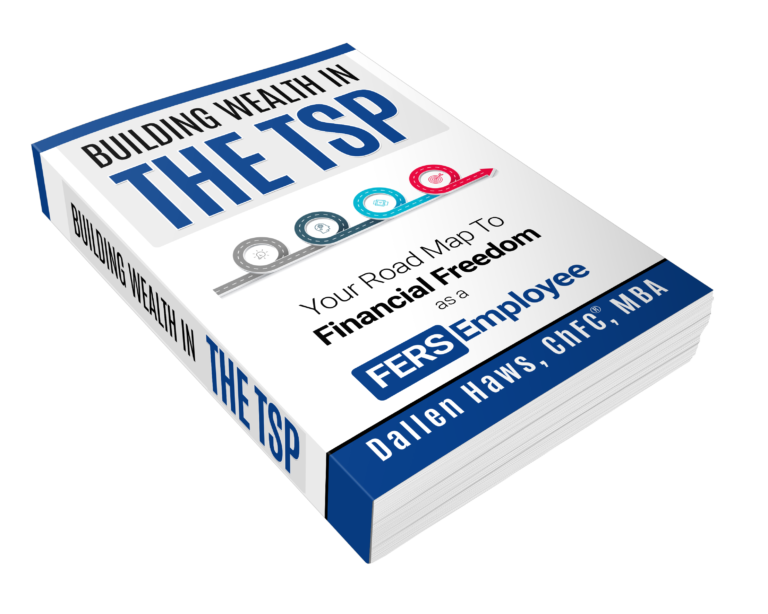Being a federal employee has numerous perks and benefits with one of the most significant ones being your FEHB (health insurance).
But as people approach age 65, Medicare comes into the picture and can have a huge impact on federal employees’ retirements.
This guide will answer the following questions and feel free to skip to the section that is relevant to you.
Table of Contents
Medicare Part A (And What it Covers)
Medicare Part B (And What It Covers)
Most Popular Options
Medicare is Different From Medicaid
Before we go any further, we have to make the distinction between Medicare and Medicaid. Medicare is what the vast majority of Americans use starting at age 65 while Medicaid only covers those in severe poverty.
This guide is 100% about Medicare, not Medicaid.
Medicare Part A (And What it Covers)
Medicare Part A covers these sorts of things:
Inpatient care in a hospital
Skilled nursing facility care
Nursing home care (inpatient care in a skilled nursing facility that’s not custodial or long-term care)
Hospice care
Home health care
For more information on what Medicare Part A covers, go here.
When To Get on Medicare Part A
65 is the magic age when you can enroll in Medicare for the first time. The enrollment window generally includes the 3 months before your age 65 birthday month, the month of your 65th birthday, and the 3 months after your birthday month.
So, all together, your enrollment period is 7 months long.
The Cost of Medicare Part A
For the vast majority of federal employees, Medicare Part A will be free of charge because you already paid the premiums in FICA taxes while you were working.
You can find more information about Medicare Part A Costs Here.
Should I Get On Medicare Part A as a Federal Employee?
Because Medicare Part A is free for most feds, there is almost no reason not to enroll. Even if you are planning to continue working past age 65 there is still no reason not to sign up as soon as you can.
It will simply provide another layer of coverage.
And if you are only enrolled in Part A (and not Part B as well), then your Federal Health Insurance (FEHB) will remain your primary insurer and Medicare will be your secondary.
Medicare Part B (And What It Covers)
Per the Medicare Website, Part B covers 2 types of services:
Medically necessary services: Services or supplies that are needed to diagnose or treat your medical condition and that meet accepted standards of medical practice.
Preventive services: Health care to prevent illness (like the flu) or detect it at an early stage, when treatment is most likely to work best.
Part B tends to cover things like:
Clinical research
Ambulance services
Durable medical equipment (DME)
Mental health
Inpatient
Outpatient
Partial hospitalization
Limited outpatient prescription drugs
However, Medicare Part B does not cover 100% of these services.
In 2022, you pay $233 for your Part B deductible. After you meet your deductible for the year, you typically pay 20% of the Medicare-Approved Amount.
You can learn more about signing up for Medicare here.
What Does Medicare Part B Cost?
The premiums for Medicare Part B are not the same for everyone. It varies based on income (MAGI) per the 2022 chart below:
Source: https://www.medicare.gov/your-medicare-costs/part-b-costs
But as the top of the chart indicates, there is a 2-year look back period. This means that what you pay in 2022 is determined by your income in 2020.
Note: This chart shows the per person monthly price not a per couple price. This means that if you are married and you and your spouse are on Part B then you will pay twice the amount shown above in the chart.
Am I Required to Enroll In Medicare Part B as a Federal Employee?
The short answer is no, you are not required to (unless you have Tricare) but you certainly might want to.
Am I Required to Get Medicare Part B if I Have Tricare?
Yes, the vast majority of the time you are required to get on Medicare A and B at 65 if you are on Tricare even if you are also covered under FEHB or still working.
You can find more information about this here.
Should I Enroll in Medicare Part B as a Federal Employee?
Yes, you probably should and here are the 3 main reasons why.
As you age, odds are that you will have more and more medical issues and expenses. Having Medicare (along with your FEHB plan) is a great way to get very comprehensive coverage with very little out of pocket expenses.
Having access to two different health insurance systems, FEHB and Medicare, is a great way to hedge your bets in retirement. After all, I can almost guarantee that there will be significant changes in these programs over the next decades and having access to both gives you the flexibility to pivot if needed down the road.
Over time, more and more FEHB plans are pushing more responsibility to Medicare. In other words, some FEHB plans are choosing to not cover things that Medicare Part B would cover. This could mean more out of pocket expense for you if you don’t have Medicare Part B.
But again, there is no perfect solution for everyone so here are the main combinations that Federal Employees utilize in retirement:
Option 1: FEHB and Medicare A and B
This option means that you will continue paying your federal health insurance (FEHB) premiums as well as the premiums for Medicare Part B.
The major advantage of this option is that your coverage is often very comprehensive with very little out of pocket expenses and if you sign up for Medicare Part B right away then you won’t see any price increase for delaying (there is a paragraph later in this article all about this).
The obvious disadvantage is that your monthly premium cost (especially if you have high income) can be quite high.
However, more and more FEHB plans are offering Medicare Part B premium reimbursements if you are on both at the same time.
Aetna, Blue Cross Blue Shield, and Kaiser all offer plans with premium reimbursements built in.
So for some people, they can actually save money in retirement by switching to a Medicare-friendly FEHB plan once they get on Medicare Part B.
Option 2: Just FEHB and Medicare Part A
This option is basically deciding to forego Medicare Part B and remain on FEHB as the primary insurer.
Many people pick this option when their income would make Medicare Part B premiums extremely high or when they feel that their current FEHB plan is plenty for their needs.
If you were to go with this option you will often want to be on a FEHB plan that is fairly comprehensive (like Blue Cross Standard) to limit your potential out of pocket expenses in retirement.
The major downside of this option is that you may have to pay a steep penalty if you ever want/need to get on Medicare Part B in the future.
Penalty for Delaying Medicare Part B
If you choose not to enroll in Medicare Part B at 65 and never enroll in it later then you don’t have to worry about a penalty.
However, if you choose not to enroll in Medicare Part B when you are first eligible but then decide to enroll later, you will pay a 10% penalty for every year that you waited to enroll.
For example, if you were first eligible at age 65 but didn’t enroll in Medicare until 70 then your premiums would be 50% higher for the rest of your life.
This is why it is so crucial to make sure you really don’t need Medicare Part B before opting out.
Note: If you are still working at age 65 and are covered by FEHB then this clock for the 10% penalty doesn’t begin until you retire. Or if you are retired but covered under your spouse’s FEHB who is still working then the clock doesn’t start until they retire.
Option 3: Just Medicare
This is certainly the least common option. FEHB is a great benefit and giving it up in retirement is rarely the best option.
But if you did decide to just have Medicare you will want to consider getting a Medicare Supplement plan that will fill some of Medicare’s gaps in coverage.


